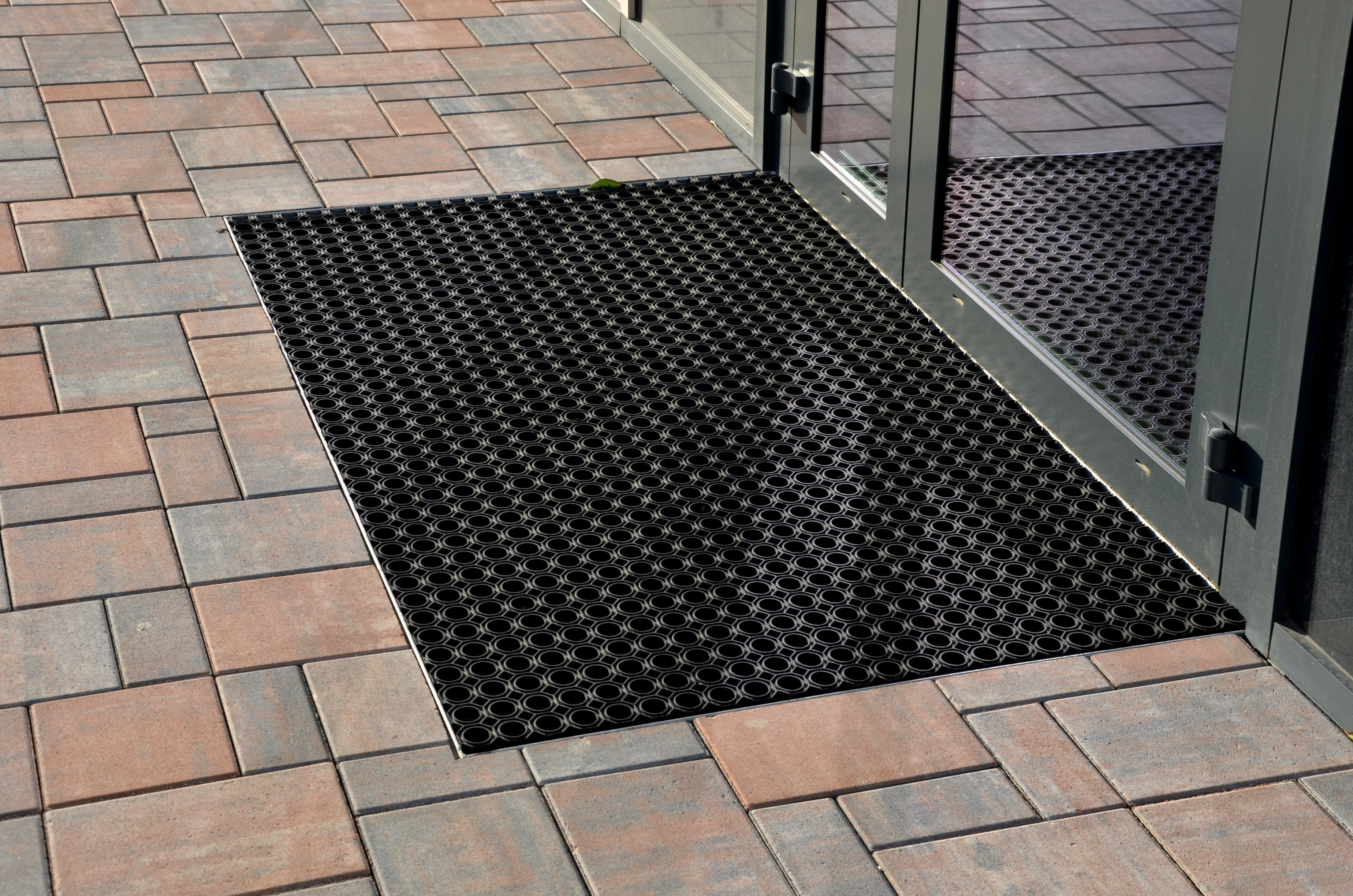
Floor safety is typically about making sure grip is maintained while moving around on the floor and that the floor is free of hazards, such as sharp nails or other debris. If heavy machinery is regularly moving on the floor or people need to carry heavy loads, safety becomes more important, as slipping then becomes easier. A clean and dry floor ensures fewer accidents and injuries.
What Factors Into Floor Safety?
Some important elements that factor into floor safety that every business owner should keep aware of include the following:
1. Materials
Different materials provide different amounts of traction and durability. Porcelain, ceramic, metal, and more all have the potential to be very slippery, especially in wet conditions. Floors also aren’t unbreakable. Some materials can break in ways that can potentially be dangerous, such as by leaving sharp edges behind, rusting, or even just giving out entirely (potentially causing a fall, depending on what is under the floor).
If a floor is made of a material that just isn’t giving employees the grip they need to keep safe, keep in mind that rugs and mats can often be used to solve or at least lessen the problem. It may also be possible to make key areas where employees are working more comfortable in this way, such as by laying down anti-fatigue mats to help reduce the strain on their feet and legs.
2. Fluids & Debris
For a floor to be considered safe, it typically should be kept dry and clear of any debris. When wet, floors can become dangerously slippery, even if “grippy” materials are used in relation to worker shoes and vehicles to help keep things in place. This becomes especially dangerous when dealing with heavy loads or big machines, where a slip could mean a significant amount of force and momentum is being sent somewhere it wasn’t intended.
The danger of debris can vary significantly. A lot of debris, like dust and other small soft matter, has the potential to reduce traction on a floor. Some debris can do the opposite, potentially making it more grippy. The most dangerous kind of debris is often made of materials that are hard to see but also very hazardous, like small nails, broken glass, and other objects that could puncture skin, shoes, or even tires.
3. Time
The passage of time is the enemy of safety and stability. Everything wears down, and this is especially true of floors that see significant traffic. The more feet and heavy loads passing over a floor, the quicker that floor will wear down. While most floors are designed to last and major wear is likely to be infrequent, it still happens. Run any business long enough and wear will eventually cause problems.
There isn’t one single time frame in which to start considering a floor unsafe. It depends on how it was constructed, which materials were used, and what is actually happening on and to the floor on a regular basis. To better understand when you’re likely to have problems, it’s a good idea to research the materials your business has used for their flooring and the expected lifespan of those floors.
4. Maintenance
Proper maintenance is how a business combats the inevitable wear and tear that their floors are likely to see. If floors are regularly inspected for issues and those issues can be addressed early, there is less time for small problems to get worse and cause a cascade of more expensive problems. Many businesses make the mistake of ignoring small issues to try to save money, when fixing those issues could potentially have prevented much more expensive issues from occurring later.
Cracks are a good example of a common floor problem that should be dealt with quickly, especially in cold environments. Cracks can widen and get worse with time. One of the worst things that can happen is water seeps into cracks. Water can breed germs and cause mold. If it freezes, water can expand and push open a crack even more.
5. Use Cases
Depending on what is actually happening on a floor, there can be a huge difference in how safe it should be considered. If heavy machinery carrying bulky loads is often passing over a floor, grip should be viewed as essential. Even a small shift carries so much momentum that the wrong surface could lead to a deadly accident.
However, if people are only walking over a surface with light loads (like pushing a shopping cart), grip becomes less important. It may be possible to sacrifice some traction for aesthetics, durability, or other traits that a business may want to prioritize. The floor still shouldn’t be slippery, but it isn’t as important that traction is being maximized.
The Importance of Good Boots, Tires, & More
If you want your floors to be safe for your business, look at what is going to be touching those floors regularly. If someone is going to be driving or moving around while carrying something heavy, make sure any vehicles have well-maintained, grippy tires and that all workers are wearing appropriate work boots that are unlikely to slip, even in less than ideal conditions.
Where customers are concerned, things require a bit more interpretation as a business generally doesn’t control much about what customers wear. Many businesses go with epoxy, and that’s usually fine enough as long as it isn’t wet. However, businesses where customers might move around with heavier loads (such as at some hardware stores) may want to specifically choose grippier materials for their floors to accommodate for the fact that they have less control over what customers wear compared to their workers.
How Alsco Uniforms Can Assist With Floor Safety
Floor safety may seem basic, but it should be taken seriously. Even seemingly minor slips can sometimes cause serious injuries that can cost a business a lot. Losing traction at the wrong time can sometimes even lead to very serious accidents, especially if heavy machinery is involved.
Alsco Uniforms offers a variety of facility services and more that can help to keep your floors safe. We can equip your business with mops, mats, towels, and more—all of which can help to keep your floors safer for employees and customers. Read about what we can offer today. Then, feel free to contact our team if you have any questions about how we might be able to help.
References
Floor Safety: Reduce Slip, Trip, and Fall Risks in Your Business. (August 2020). Missouri Employers Manual.
Half of Floors in Businesses Do Not Pass Safety Muster: Study. (October 2017). Business Insurance.
